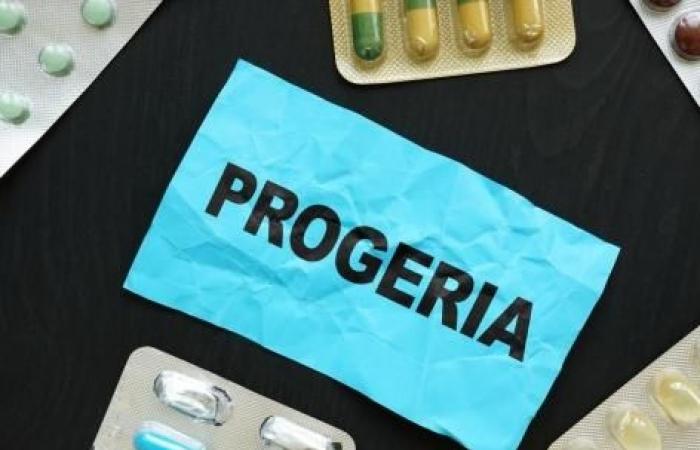THE ESSENTIAL
- Researchers have discovered that a protein called Ang2 may improve the cardiovascular health of progeria patients.
- Heart failure and stroke are the most common causes of death in people with this rare disease.
- According to the study, Ang2 treatment improves, among other things, the functioning of endothelial cells, boosts the formation of blood vessels and even restores nitric oxide levels.
Hutchinson-Gilford syndrome, better known as progeria, is a rare genetic disease characterized by premature aging in children. Young patients with this disorder have a life expectancy ranging from 6 to 20 years, and are most often killed by cardiovascular disease (heart failure, stroke, etc.).
Researchers from the National Institutes of Health (NIH) as well as the Universities of Maryland and Duke have made a discovery that may improve their prognosis.
In an article published in the journal Aging Cell on October 18, 2024, they revealed that they had identified a protein that could help improve the cardiovascular health of patients with progeria.
Hutchinson-Gilford syndrome: a protein involved
Wishing to better understand the origin of the cardiovascular complications observed in patients affected by Hutchinson-Gilford syndrome, researchers studied animals affected by this disorder. They more precisely observed their endothelial cells. The latter are known, among other things, to play an essential role in the control of vascular tone, and by domino effect, blood flow.
By studying the signals sent by the endothelial cells of diseased animals, the team discovered that angiopoietin-2 (Ang2) – a protein that regulates the formation of new blood vessels and the flow of substances through their walls – is impaired in subjects affected by the disease. Which leads to endothelial cell dysfunction.
The work also showed that administering Ang2 could “save” endothelial cells. This boosted blood vessel formation, normalized cell migration and increased nitric oxide levels, which are essential for a healthy vascular system.
“Ang2 treatment also enhances signaling from endothelial cells to vascular smooth muscle cells, suggesting that it may be a potential therapy for vascular dysfunction in Hutchinson-Gilford syndrome.”explains lead author and doctoral student in biological sciences Sahar Vakili in a press release.
Progeria: one step closer to treatment
Professor Kan Cao, who also worked on this research, recognizes that this discovery will probably not lead to a definitive cure for progeria in the immediate future. However, the disease specialist assures that this represents a promising advance. It could help improve heart health and reduce cardiovascular complications in patients, thereby saving them precious years of life.
“Although Ang2 only has receptors on endothelial cells, it may have a broader beneficial impact on other tissue types beyond the cardiovascular systems, such as bone and adipose tissues, because blood vessels Blood vessels are essential to our body for transporting nutrients, oxygen and waste.indicates the expert.
“This could pave the way for new treatments targeting the cardiovascular complications of progeria, which are currently a major cause of mortality in affected children”specifies his colleague Sahar Vakili. “Beyond progeria, the knowledge gained from this research could also be applicable to other age-related diseases in which endothelial dysfunction plays a role.”
The two researchers from the University of Maryland add that each discovery is a step closer to identifying a cure for progeria, a genetic disease affecting 1 in 4 to 8 million newborns.






